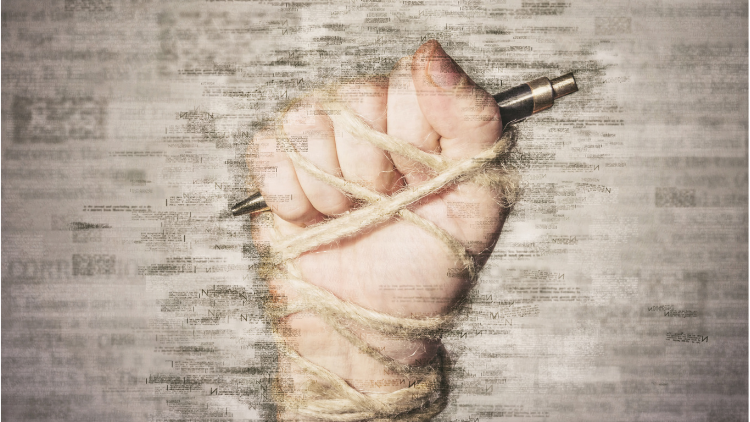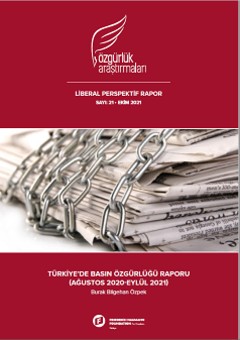Freedom of Press in Turkey
Report on Freedom of the Press in Turkey

The issue of freedom of the press in Turkey is no longer a controversial issue, and the claim of the political authority to regulate the flow of information and thought has become obvious. Both the academic literature on the subject and the political statements from the international community indicate that this issue is now a generally accepted phenomenon. The wing of the government does not deny this fact, especially after the transition to the Presidential Government System, it claims to be the main determinant of the information flow process through the Directorate of Communications, whose effectiveness in the system has increased. Director of Communications Fahrettin Altun did not hesitate to say that his duties are to help the public perceive the President correctly and to combat negative perceptions about the President. This discourse reflects the desire of President Recep Tayyip Erdoğan to make the public image that he has set for himself adopted by all citizens. And this situation brings with it the right to interfere in the broadcasting policy of media organizations that do not adopt the value that Erdogan has set for himself and cause other people not to adopt this value. In other words, public authority applies only to the President. argues that there is a “right to be perceived correctly” and normalizes the use of coercive mechanisms of public authority for the exercise of this right. While this is clearly an imposition, it is a difficult goal to achieve in our world where communication technologies are highly developed.
he purpose of this study is to examine the work done by the government to achieve the aforementioned goal. Because these studies reveal the actions that distort the freedom of the press in the country. The Freedom of the Press Reports (2015, 2016 and 2020) we have published in the past years introduced a new proposal to classify the acts that destroyed the freedom of the press. In the 2015 and 2016 reports, not only the legal framework was looked at, but also the dependency relations established by the government with private individuals and companies through public resources were examined. The conclusion reached in these reports is that public resources are distributed in return for political loyalty, far from economic rationality, and media owners, taking part in this network of relations, allocate their institutions to the government's political agenda. Thus, the government can keep the media under its control without resorting to the restrictive tools of the legal framework. In the report published in 2020, the point that draws our attention is that the legal sanctions have risen sharply and that RTÜK has started to work like a censorship institution, especially by exploiting its supervisory role on the media.
In addition, we also discussed the concept of "polarization" by suggesting a new variable in our 2020 report, and underlined that populist authoritarian regimes in particular strengthen themselves by provoking the society against each other. In this direction, we added the data we could reach to our report.
